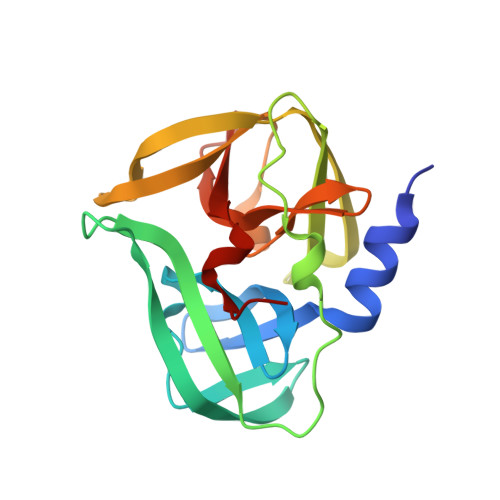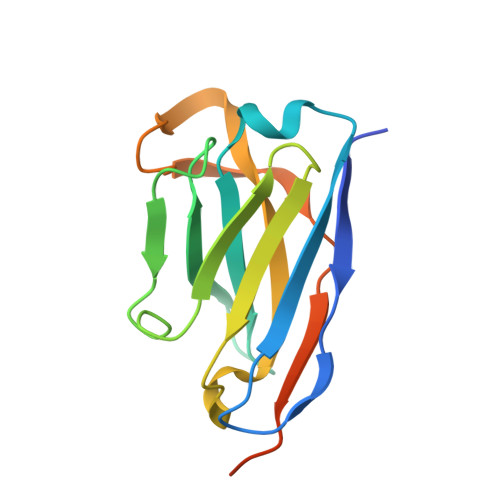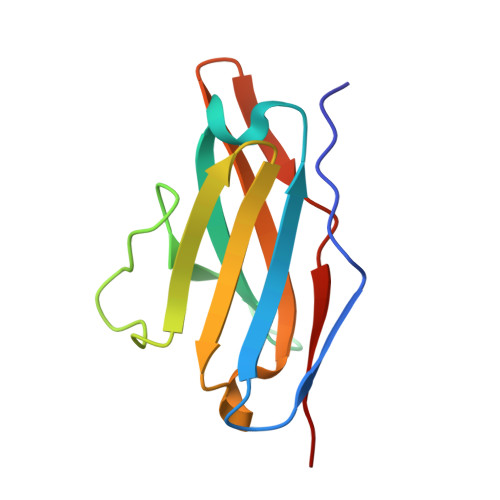Inhibitory antibodies identify unique sites of therapeutic vulnerability in rhinovirus and other enteroviruses.
Meng, B., Lan, K., Xie, J., Lerner, R.A., Wilson, I.A., Yang, B.(2020) Proc Natl Acad Sci U S A 117: 13499-13508
- PubMed: 32467165
- DOI: https://doi.org/10.1073/pnas.1918844117
- Primary Citation of Related Structures:
6KYZ, 6KZ0 - PubMed Abstract:
The existence of multiple serotypes renders vaccine development challenging for most viruses in the Enterovirus genus. An alternative and potentially more viable strategy for control of these viruses is to develop broad-spectrum antivirals by targeting highly conserved proteins that are indispensable for the virus life cycle, such as the 3C protease. Previously, two single-chain antibody fragments, YDF and GGVV, were reported to effectively inhibit human rhinovirus 14 proliferation. Here, we found that both single-chain antibody fragments target sites on the 3C protease that are distinct from its known drug site (peptidase active site) and possess different mechanisms of inhibition. YDF does not block the active site but instead noncompetitively inhibits 3C peptidase activity through an allosteric effect that is rarely seen for antibody protease inhibitors. Meanwhile, GGVV antagonizes the less-explored regulatory function of 3C in genome replication. The interaction between 3C and the viral genome 5' noncoding region has been reported to be important for enterovirus genome replication. Here, the interface between human rhinovirus 14 3C and its 5' noncoding region was probed by hydrogen-deuterium exchange coupled mass spectrometry and found to partially overlap with the interface between GGVV and 3C. Consistently, prebinding of GGVV completely abolishes interaction between human rhinovirus 14 3C and its 5' noncoding region. The epitopes of YDF and GGVV, therefore, represent two additional sites of therapeutic vulnerability in rhinovirus. Importantly, the GGVV epitope appears to be conserved across many enteroviruses, suggesting that it is a promising target for pan-enterovirus inhibitor screening and design.
- Shanghai Institute for Advanced Immunochemical Studies, ShanghaiTech University, 201210 Shanghai, People's Republic of China.
Organizational Affiliation:


















